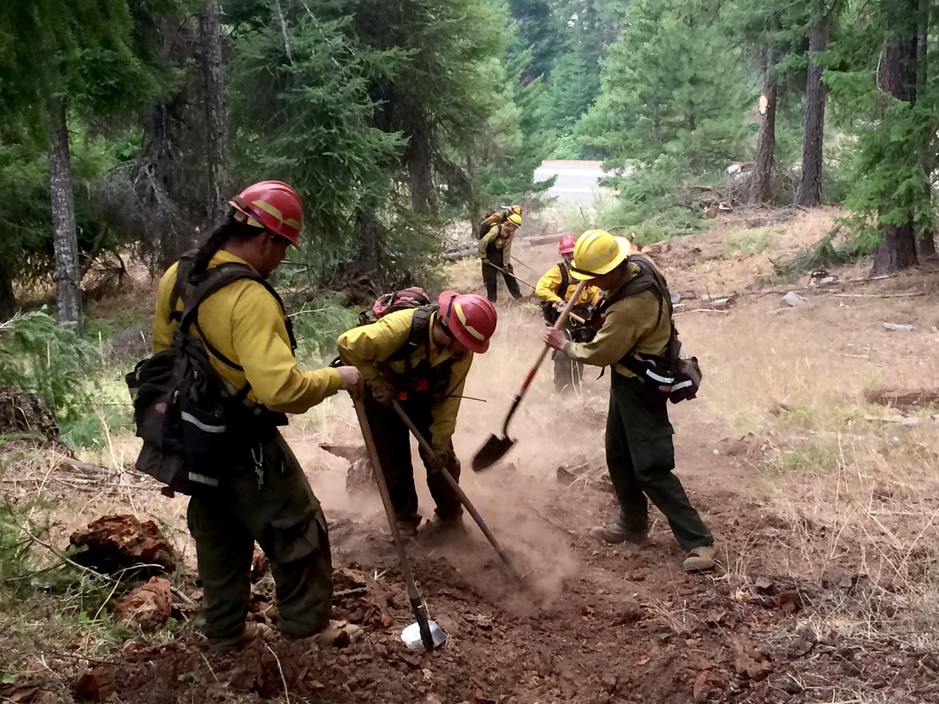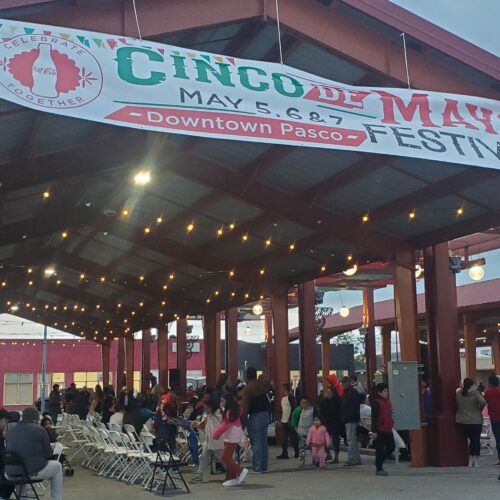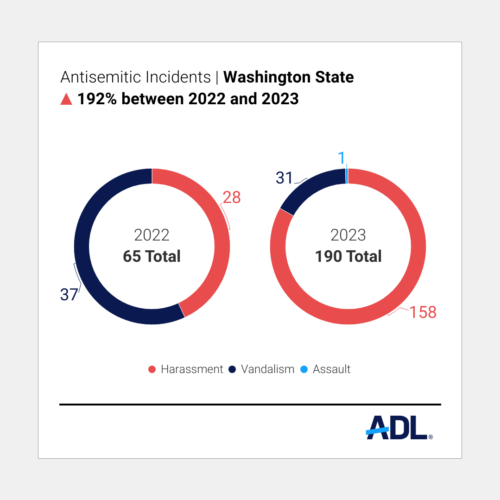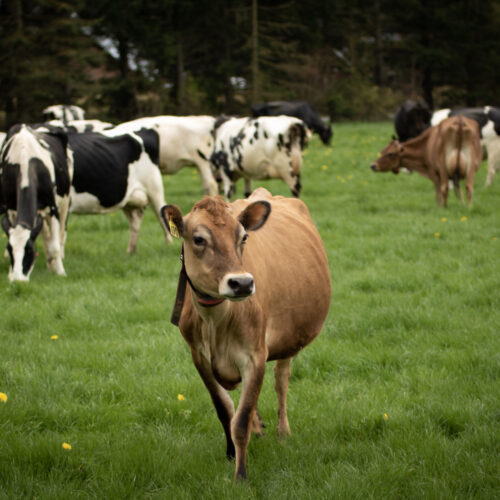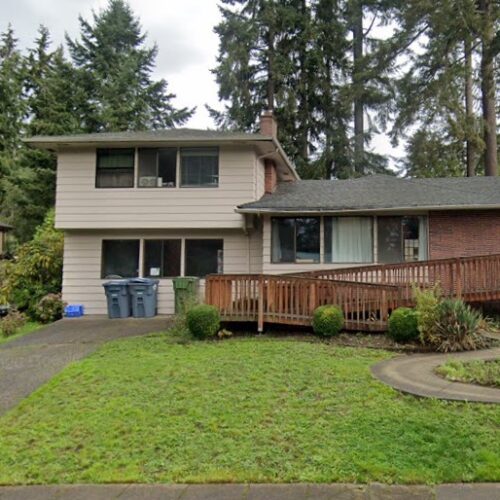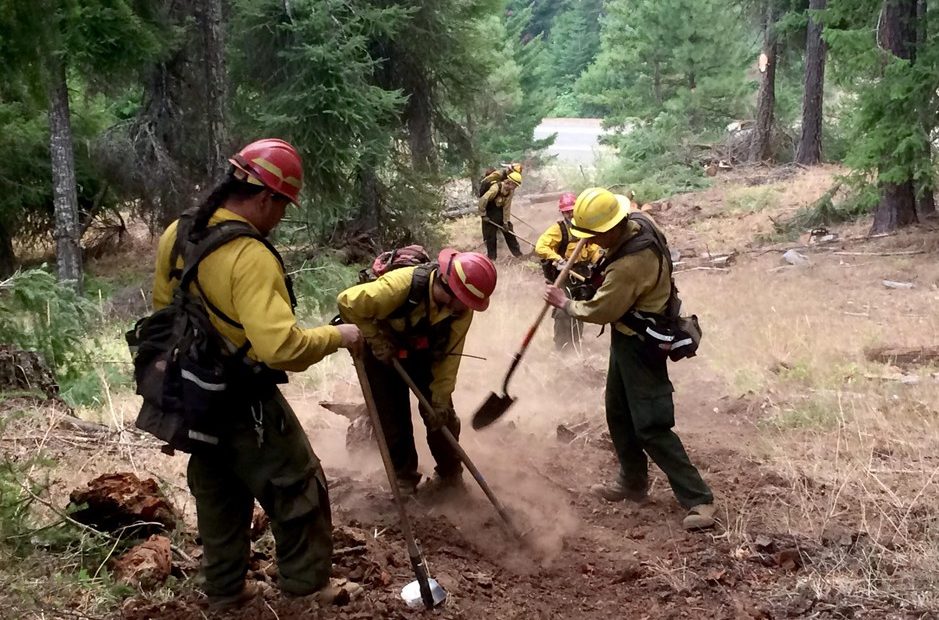
In Washington’s Methow Valley, Fire Means Danger, Loss, Smoke And Big Job Prospects
Listen
Wildfire represents both risk and reward for some small communities in Washington. Walking the line between a “good fire” and a “bad fire” can be tricky.
For the Methow Valley, wildfire is a way of life. Over the years, rural communities here in North Central Washington have learned to live with the threat, tragedy and benefits of fire on the land.
Coffee shops post the latest fire boundaries and evacuation updates. “Thank you, firefighters” posters hang from store windows. Out-of-state fire rigs park in local motel lots.
“This is a huge fire area, like the whole state. I don’t know anybody that’s not impacted by it — whether it’s because they’re choked out from the smoke coming down the valley or whether (fire) got close to their house or whether their family members are firefighters,” said Judy Hoffman, an engine boss for Methow River Wildfire.
Hoffman is among a growing number of people who count on wildfires to make at least a portion of their income. With the declining role of timber and mining as job creators in the rural West, this wildfire work is more important than ever.
“When the firefighters are making money, of course it’s going back into the economy,” said Hoffman’s boss, Bill Duguay, the owner of Methow River Wildfire.
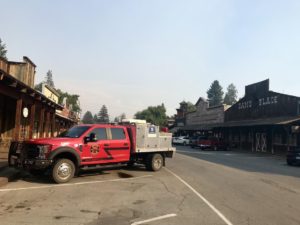
A fire truck parks in downtown Winthrop, Washington. The Methow Valley sees signs of fire nearly every summer, including vehicles filled with firefighters rattling down the highway or parked in town. CREDIT: COURTNEY FLATT
Former loggers now provide heavy equipment for fires. Former school teachers, like Duguay, now run private fire companies.
And the demands placed on them is on the rise as fire seasons get longer, hotter and drier.
John Spencer has subsidized his teacher’s salary for 34 years by working part time as a smokejumper. He’s jumped 100 missions since he took up firefighting in the summers. In that time he’s experienced the effects of a hotter climate and denser forests loaded with dead or dying trees.
“We’re already seeing it, that fires are going bigger faster,” Spencer said. “We jumped the fire in southern Oregon about a month ago, and we couldn’t catch it.”
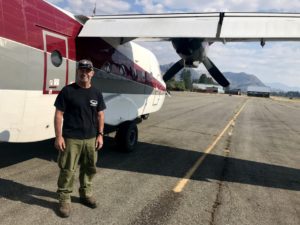
John Spencer has worked as a smokejumper for 34 seasons. This year, he jumped his 100th mission. Smokejumping started in Winthrop and has remained a part of the wildfire economy in the valley. CREDIT: COURTNEY FLATT
Generations of smokejumpers have worked at the North Cascades Smokejumper base since it opened in 1939. Spencer grew up playing across from the airfield, where his cousins worked in the 1970s. He says the community is proud of its wildland firefighting heritage — especially as more people are part of the wildfire economy.
“I have friends here in the valley that actually used to run a logging business and they now provide bulldozers for firefighting on the lines, water tenders for spraying roads. They provide heavy equipment for fires,” Spencer said. “And then you have some of the local community that are a part of the shower units and the food units and providing catering services for fire. Our local markets provide us with lots.”
When wildfire represents both risk and reward for communities like Spencer’s, walking the line between a “good fire” and a “bad fire” can be tricky. On the one hand, fires (and the accompanying smoke) can be a real threat to the community they live in. On the other, the forests need fire. And there’s also the matter of firefighters needing work.
“There are probably some companies and some firefighters that don’t make it when we have a lean year. They have to sell equipment, or they quit firefighting because they had a bad year, and that’s unfortunate because there is an investment of training and time. Waiting for the fires, it just feels like a wasted season,” said Duguay, the Methow River Wildfire owner.
In 2014 and 2015, there was plenty of wildfire — and firefighting work. But homes burned. Duguay lost a close family friend, one of three firefighters who died in the Twisp River Fire.
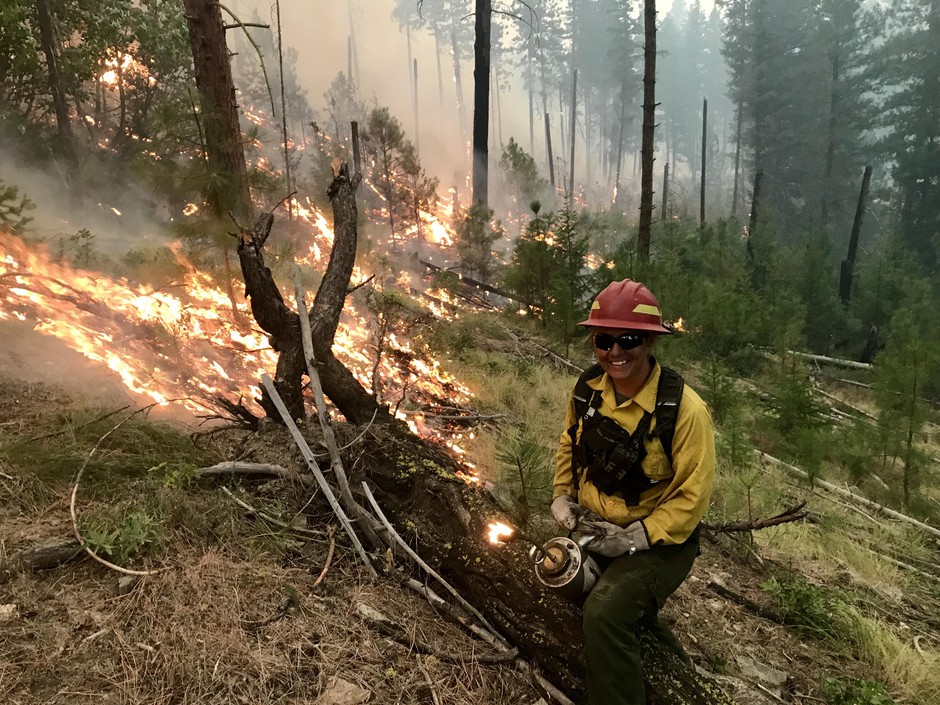
Judy Hoffman says firefighting saved her life. She’s dedicated to the job, even when it means saving money to keep her covered during slow years. CREDIT: JUDY HOFFMAN
‘A Good Fire Year’
On the other hand, the summer of 2017 saw fires concentrated on terrain in the area where there was minimal risk for human life or property — the kind of fire season that can bring ecological benefits if fire is allowed to play its natural, forest-thinning role.
“Most of the fires were where they are supposed to be. They’re up in the mountains. They were away from communities. And even if there were evacuation notices, luckily, they didn’t really come out of the mountains and take homes,” Duguay said.
But even so, federal agencies chose to aggressively deploy firefighting resources, making 2017 one of the biggest years for Duguay’s business and the people it employed.
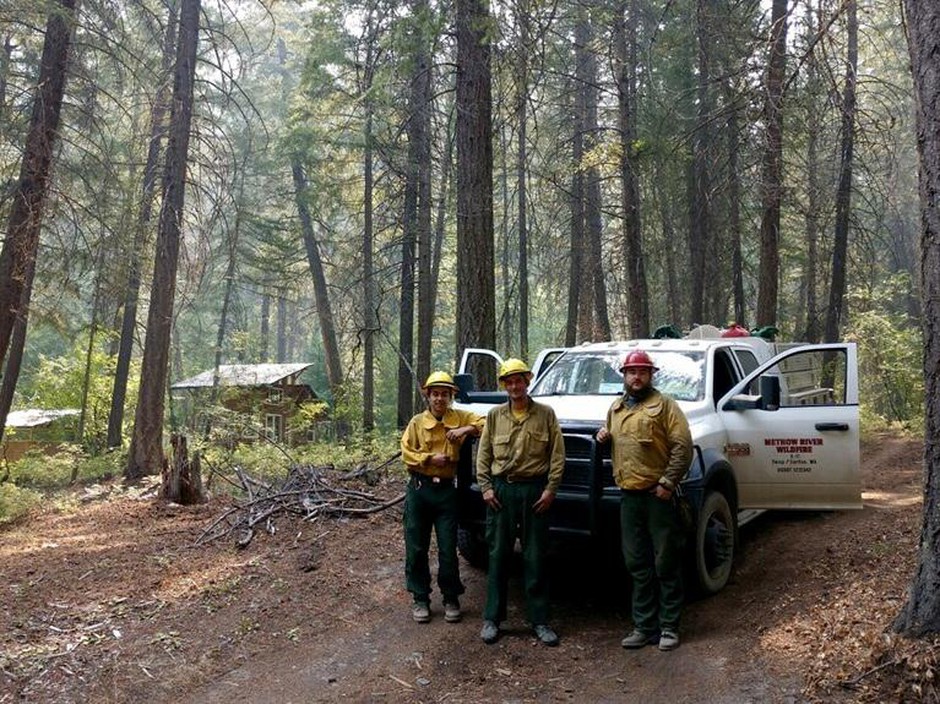
Firefighters with Methow River Wildfire worked to protect buildings during the Crescent Mountain Fire. Engine boss Steven Baltrusch (right) also works various jobs during the off season. Also pictured: Allen Dolph and Richie Harvey. CREDIT: BILL DUGUAY
“So that was what I would call a good fire season,” Duguay said.
Even in these good fire seasons, each crew member Duguay hires has to find a winter job.
“They’re challenged to make enough money to make it through the year as it is,” Duguay said.
One of his engine bosses, Steven Baltrusch, has worked in all sorts of off-season gigs: busing tables, demolition, security.
“You just got to be willing to work whenever you can,” Baltrusch said. “Even though fire season is kind of a small portion of the year. It’s something I wouldn’t give up. There’s no way. I love it. I’ve been around it for too long. It’s a part of me.”
Fire And Communities: It’s Complicated
The economic consequences of fire on small communities have been borne out in several studies. Turns out, it’s complicated.
Emily Jane Davis, an extension specialist and assistant professor with Oregon State University, conducted an analysis on the economic effects of wildfires on Trinity County, California, an area very much like the Methow Valley.
“Historically it was much more based on the forest industry. They also have some tourism and recreation,” Davis said.
Locals dubbed the 2008 wildfire season Davis studied “The Lost Summer.”
“There was not only so much fire and so many closures, but also so much smoke. Tourists were not coming to the community. People who lived in the community could not have the same quality of life and lifestyle they usually had,” Davis said.
In 2008, fire affected local businesses, local employment numbers and tourism. Sometimes it hurt, sometimes it helped.
In the short term, fire suppression efforts helped some local businesses. Researchers estimate at least $7.8 million from the firefighting efforts went into the local economy. That’s out of $159 million total spent on the fire. Or put another way, for every $200 allocated by the government to suppress wildfires in Trinity County, $10 of that money ended up in the cash register of a local business.
Some firefighters ate at local restaurants and shopped at local grocery stores. Even though the government provided most of the supplies for the fire camps, they occasionally needed to buy food and ice. And, yes, the fire camps were good for suppliers of outdoor toilets. Some of the local loggers and small contractors helped fight the fires and earned extra income.
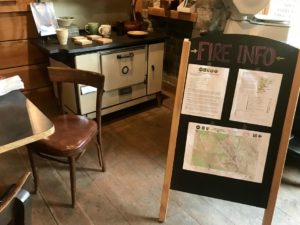
Stores in the Methow Valley often provide information on nearby fires. CREDIT: COURTNEY FLATT
“They can really be on the edge already and some of them were able to actually get some work on the fire, which kept them going. And if they hadn’t had that work, (I’m) not sure what would have happened otherwise,” Davis said.
The Lost Summer
But there’s that moniker: the Lost Summer. Tourism was down. Way down. Recreation was down. Timber burned. Local wine grapes were tainted by smoke. All that can be hard in the long-term, especially when other economic factors are at play, like the 2008 recession, which hit just after the fire.
“The take-home is that we have these bigger fires. They can last longer. They can cost a lot of money, and they have pretty extensive but complex economic effects on communities and on the larger economy over time,” Davis said.
Anecdotally, businesses in Washington’s Methow Valley have experienced similar economic consequences from wildfires. What’s good for the firefighting economy — fires to put out — isn’t always good for the community as a whole. The tourism industry sees a precipitous drop off when wildfires pick up in the area.
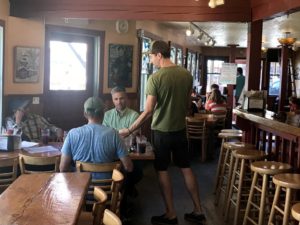
Old Schoolhouse Brewery owner Jacob Young serves food to his customers. He says when there’s little smoke and fires are far away, he sees more patrons.CREDIT: COURTNEY FLATT
When there’s a lot of fire or smoke, out-of-towners often don’t show up. There are fewer diners and drinkers at the Old Schoolhouse Brewery — known around town for its award-winning beers — in downtown Winthrop.
“It dramatically affects us,” said brewery co-owner Jacob Young. “When we have fires, we close the outside (seating). Or we don’t open. We are at the mercy of the fires.”
Electricity goes out frequently during wildfires. Fewer staff are needed.
But in the off season, the brewery sometimes employs out-of-work firefighters to help brew beer or in handyman positions.
That just goes to show the complexities of the fire economy.
Investing In Fire’s Future
For Methow River Wildfire engine boss Judy Hoffman, those complexities all come down to one simple solution: Manage your money well.
The job can be hard, and fires are unpredictable. Some seasons there are a lot of fires to put out — and the money comes fast. Other years, you see far fewer flames. Money can run out quickly if you spend it as fast as you make it. Hoffman has been really disciplined about saving for the slow years.
“Firefighters are a lot like fishermen. They get a whole bunch of money, and it’s gone really fast. And my grandma taught me really, really well. That’s not how life works,” Hoffman said.
Hoffman started fighting fires during a four-year prison sentence in Arizona. Inmate crews often help out on larger fires. When she was released, she moved back to Washington and landed a job at Methow River Wildfire.
“I love everything about firefighting — even the hard days because at the end of the day I get to say, ‘Hey, I did that. We made it through it.’ I’m doing everything I can to dedicate myself to fires because it saved my life,” Hoffman said.
Her hope is to one day run her own private contracting company, open for business and ready to travel to any fire — in the Northwest, in Arizona, in Texas.
“I want more for myself. You know you always want more. So I’m going to try to start my own company, like Bill’s, and to be able to provide for my family in a better way,” Hoffman said.
Copyright 2018 Earthfix
Related Stories:
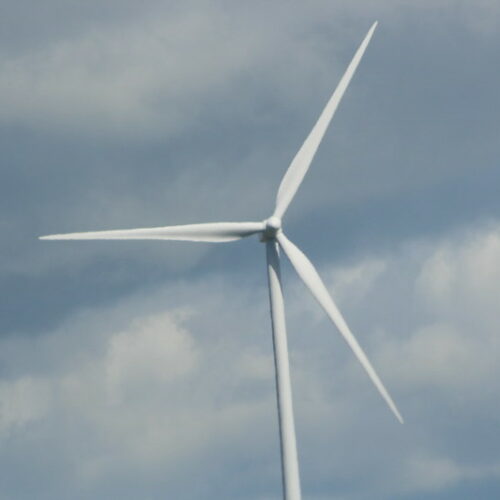
Largest proposed wind farm in WA slashed in half, firefighting issues are part of the problem
A controversial wind farm that was set to be the largest in Washington has been slashed nearly in half. (Credit: John McIntyre, / Flickr Creative Commons) Listen (Runtime 0:57) Read… Continue Reading Largest proposed wind farm in WA slashed in half, firefighting issues are part of the problem
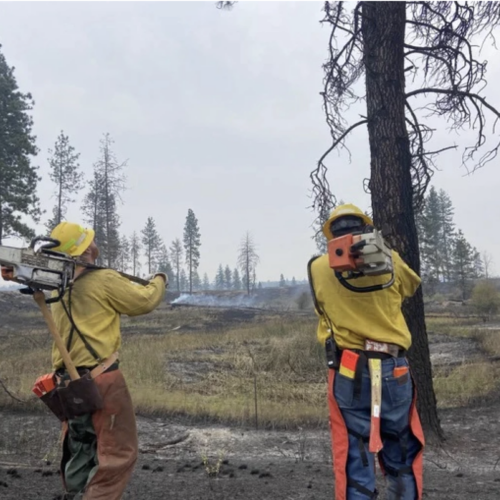
Precipitation, wind change slow growth of Spokane County wildfires
Workers remove trees impacted by the Gray Fire near Interstate 90. (Courtesy: Washington State Department of Transportation) Read By: Rebecca White / Spokane Public Radio Update: Interstate 90 has re-opened. Washington… Continue Reading Precipitation, wind change slow growth of Spokane County wildfires
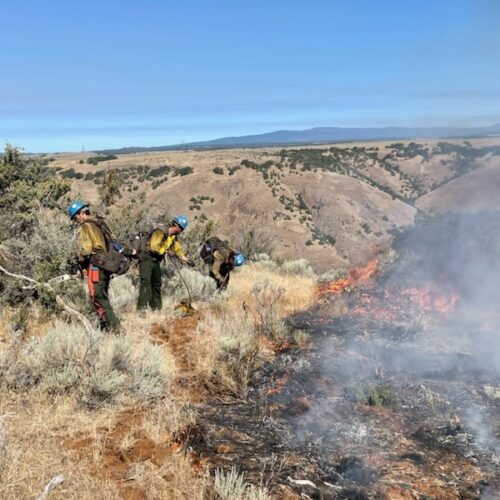
Drought conditions lead to several new, large fires in Washington, Oregon
Prineville Hotshots construct handline along the edge of the Newell Road Fire in south-central Washington. (Credit: Newell Fire Information, Facebook) Read As new, large fires have started in Oregon and… Continue Reading Drought conditions lead to several new, large fires in Washington, Oregon

